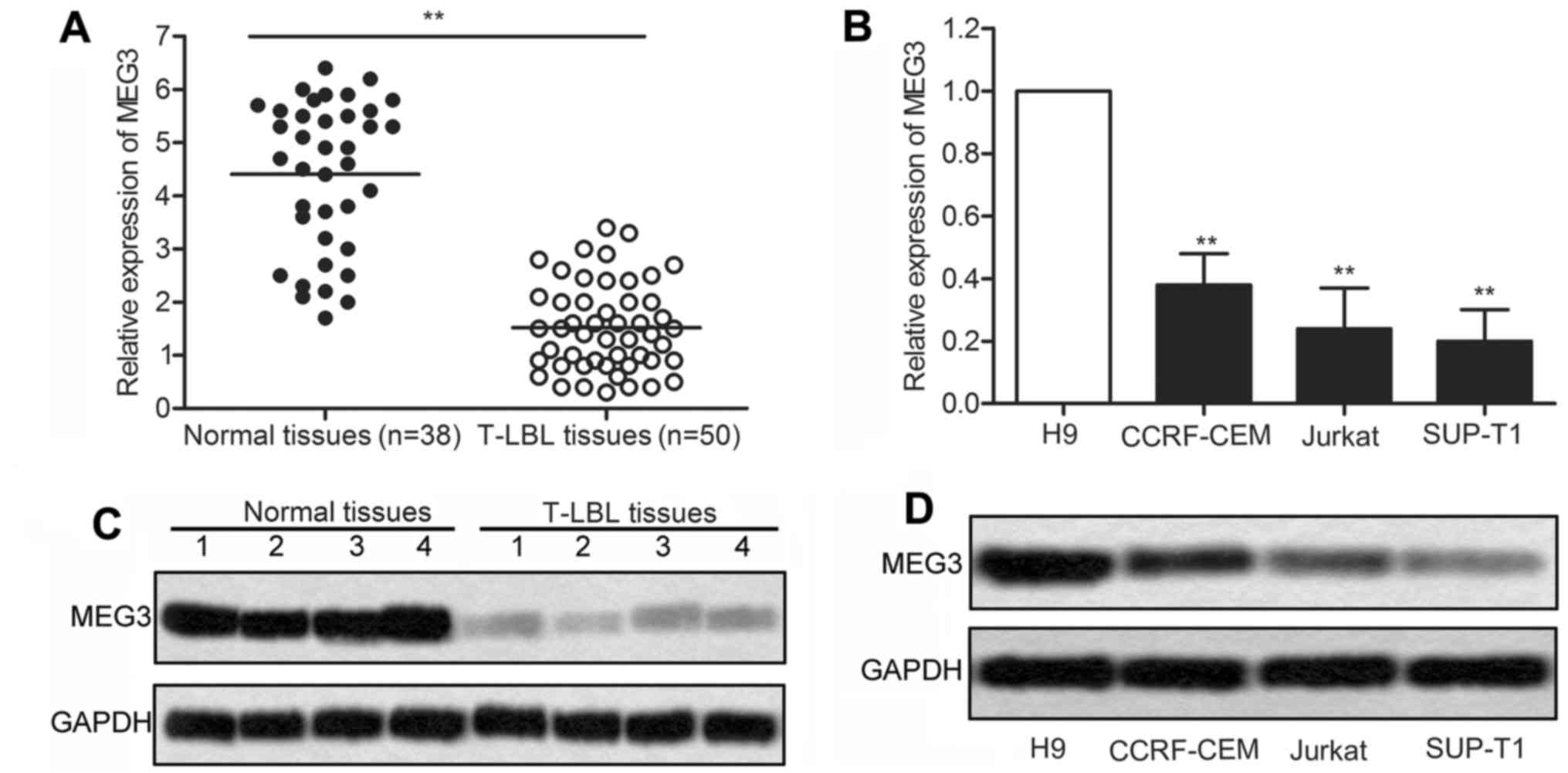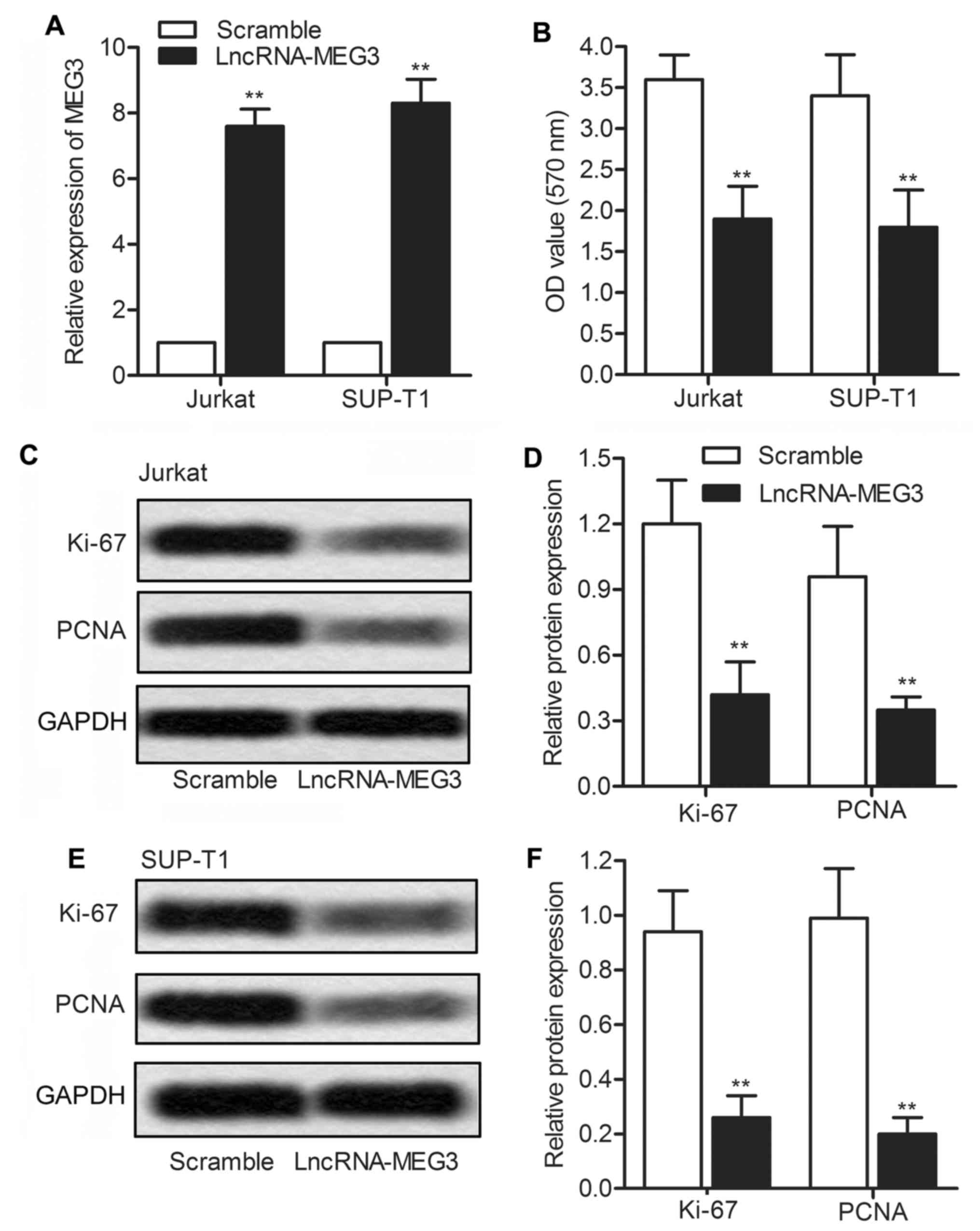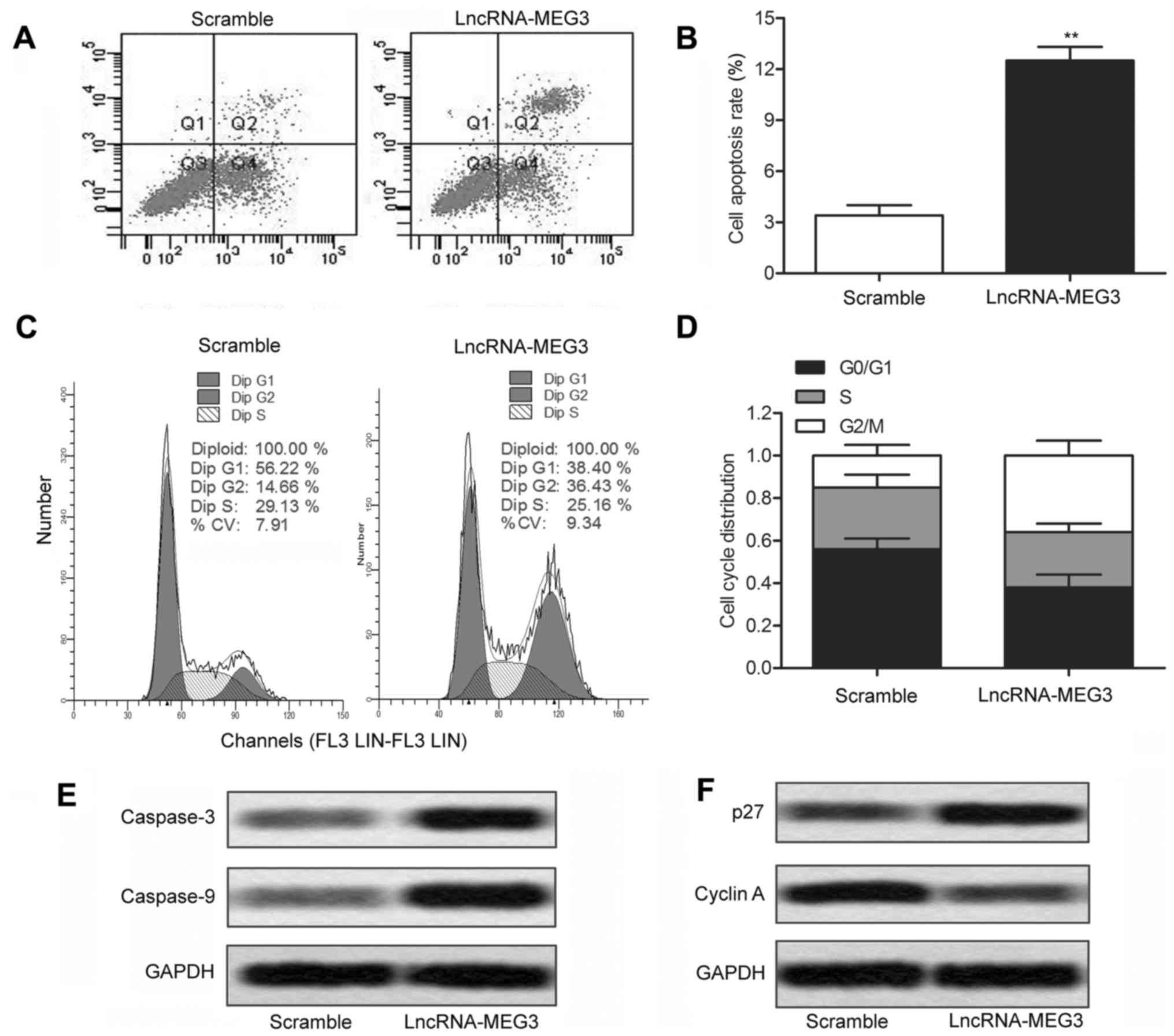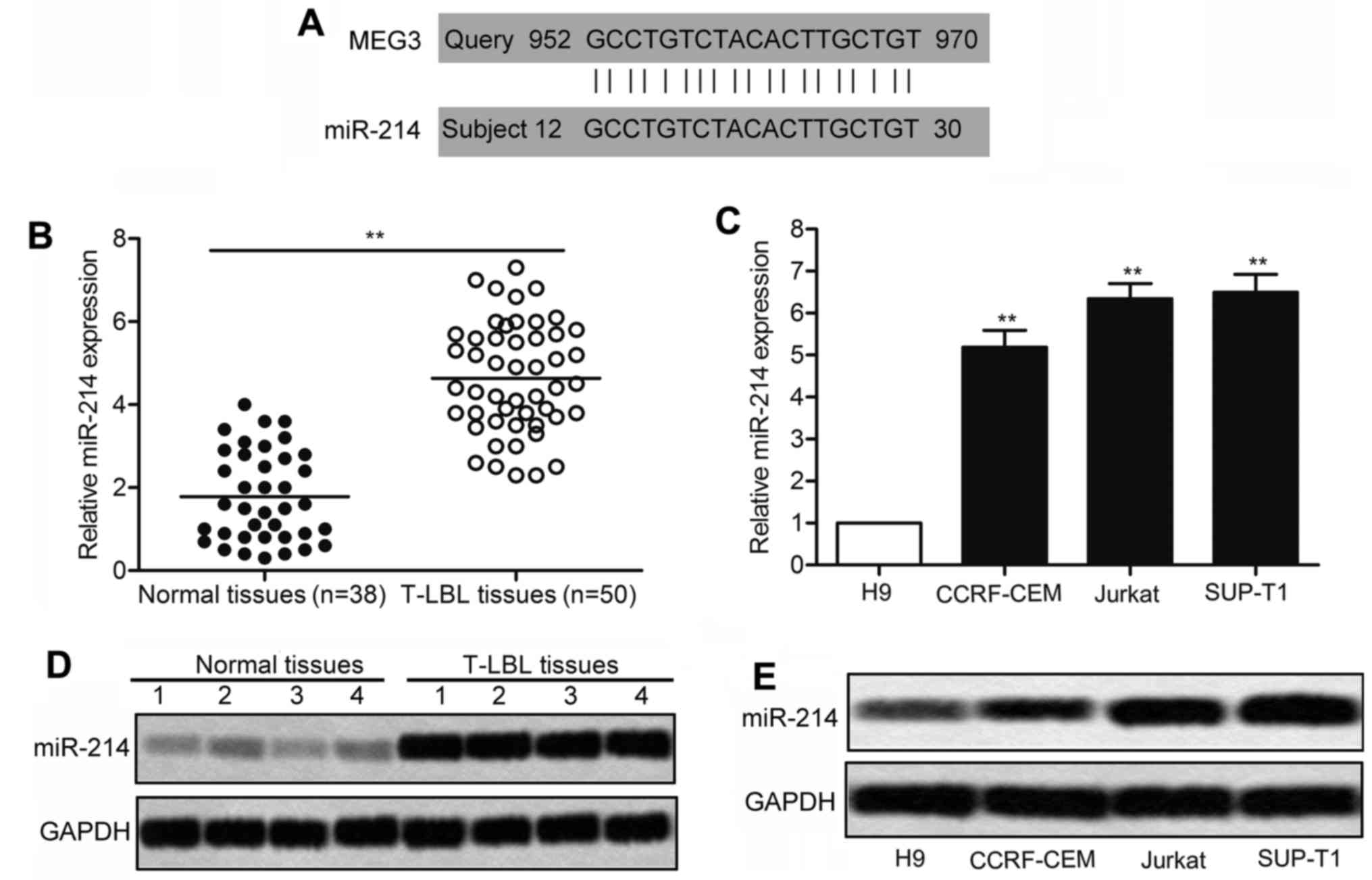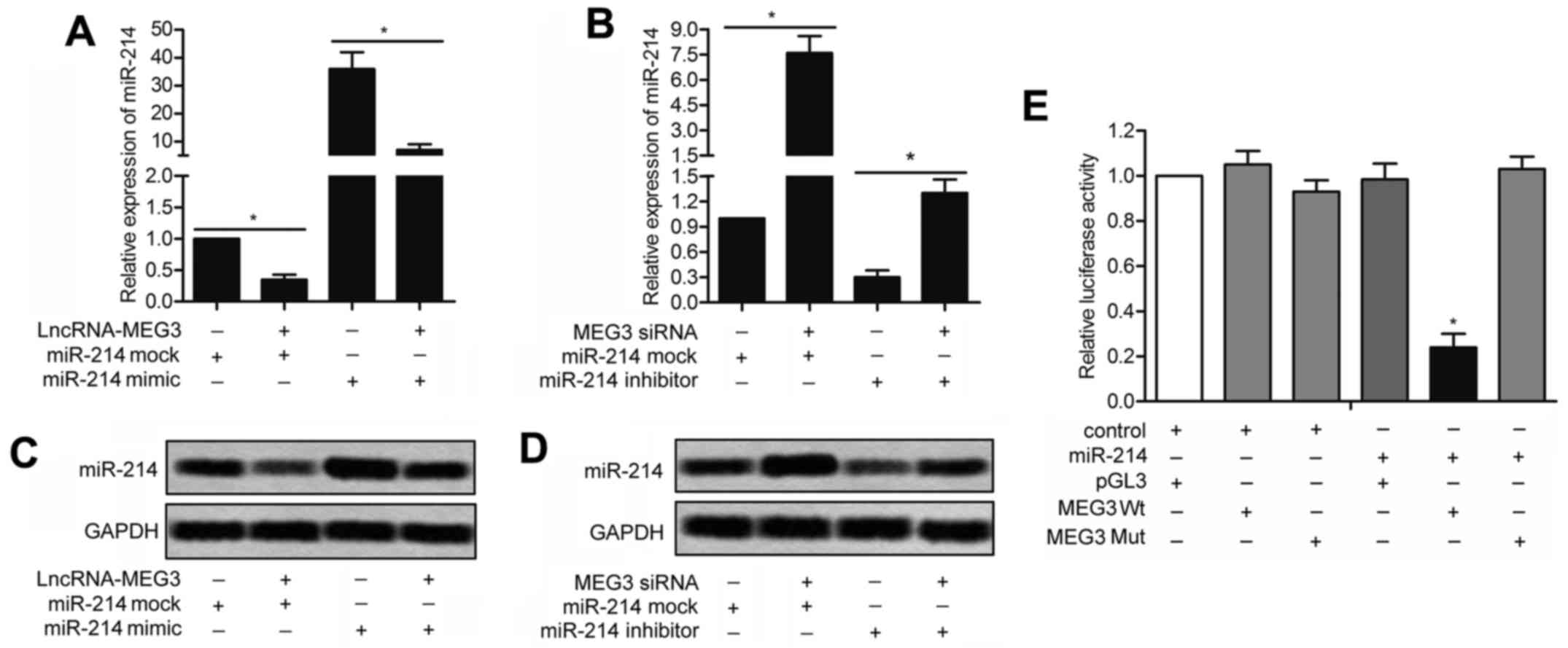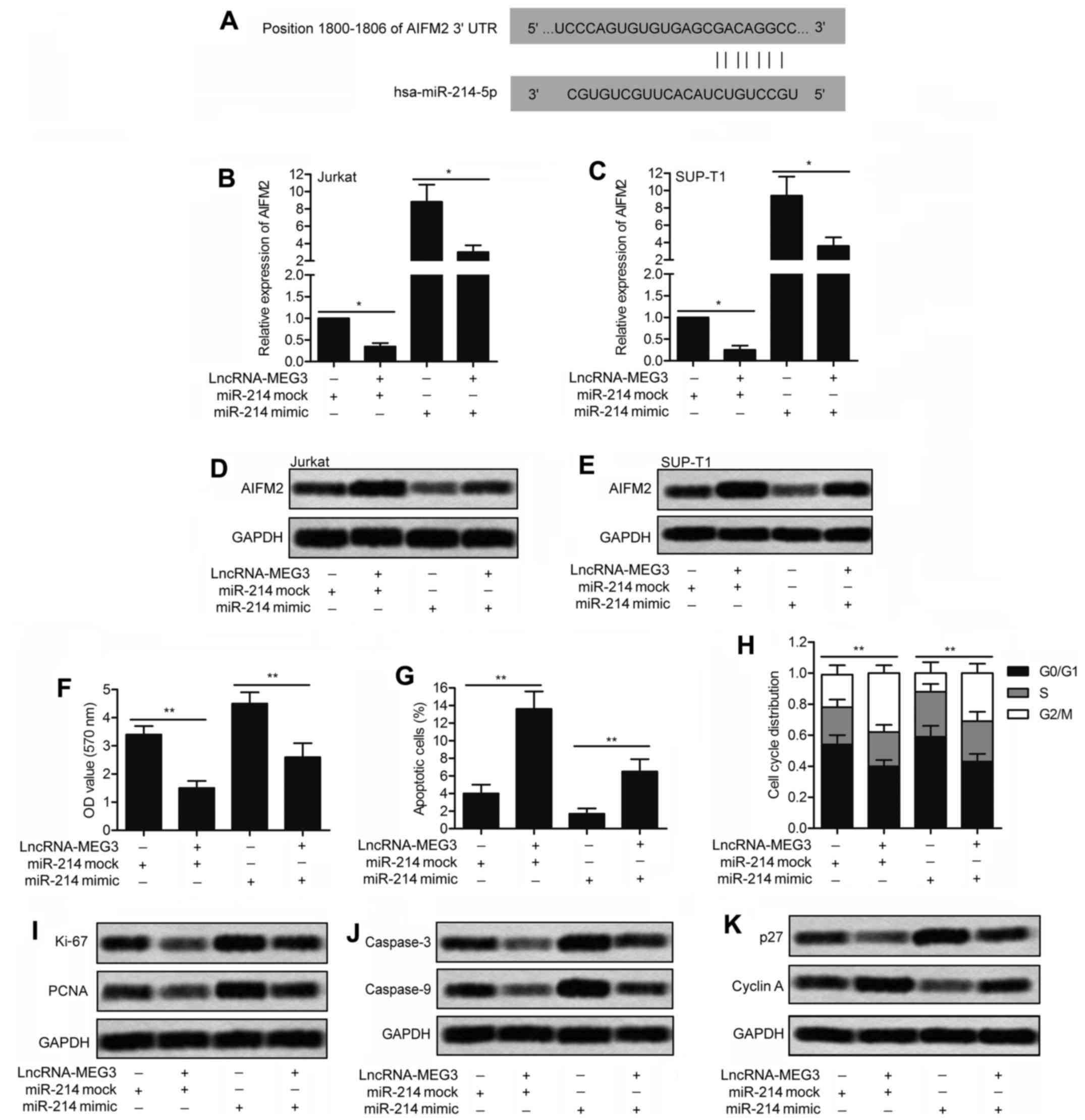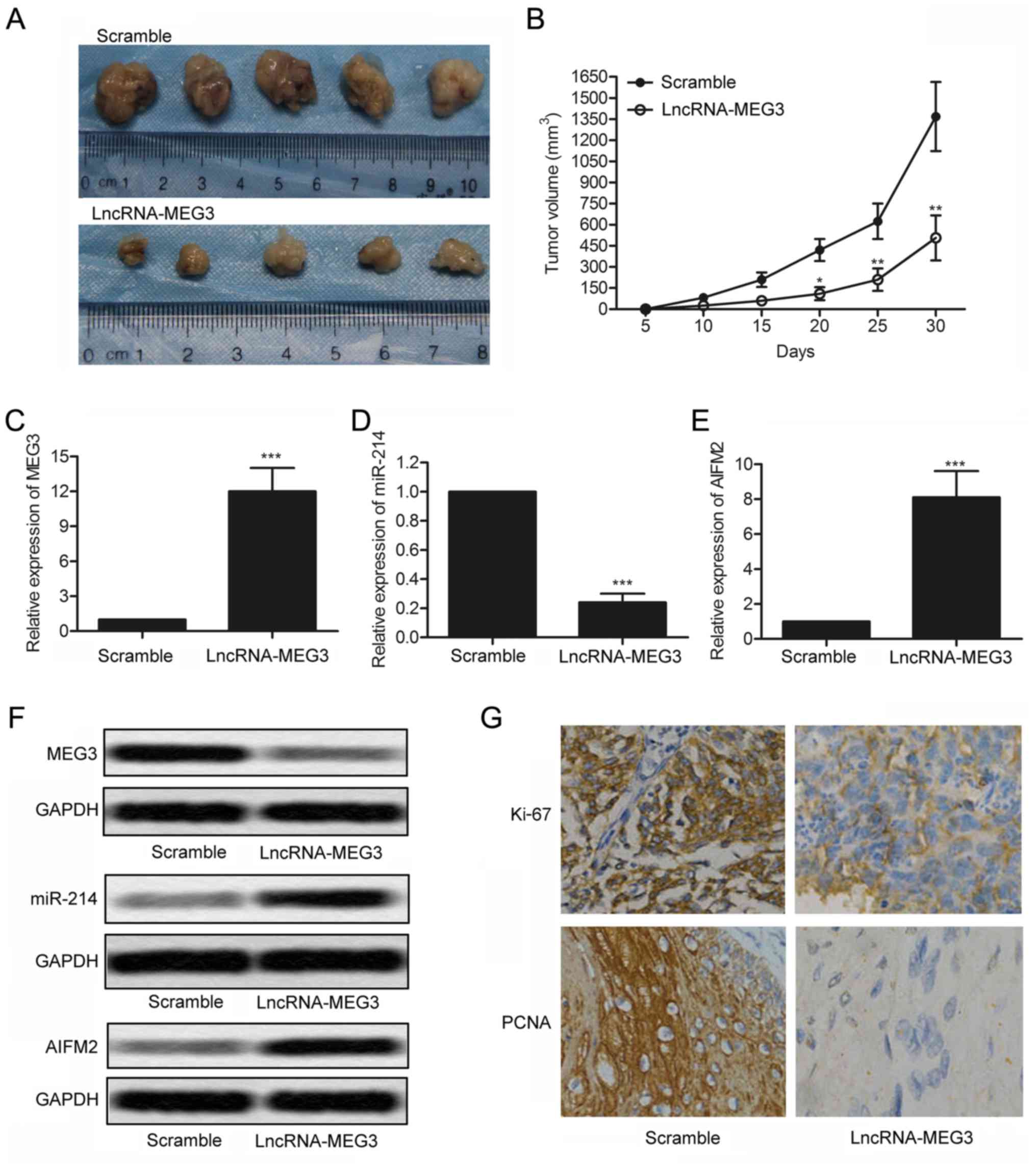|
1
|
Armitage JO and Weisenburger DD: New
approach to classifying non-Hodgkin's lymphomas: Clinical features
of the major histologic subtypes. Non-Hodgkin's Lymphoma
Classification Project. J Clin Oncol. 16:2780–2795. 1998.
View Article : Google Scholar : PubMed/NCBI
|
|
2
|
No authors listed. A clinical evaluation
of the International Lymphoma Study Group classification of
non-Hodgkin's lymphoma. The Non-Hodgkin's Lymphoma Classification
Project. Blood. 89:3909–3918. 1997.PubMed/NCBI
|
|
3
|
Park HS, McIntosh L, Braschi-Amirfarzan M,
Shinagare AB and Krajewski KM: T-cell non-Hodgkin lymphomas:
Spectrum of disease and the role of imaging in the management of
common subtypes. Korean J Radiol. 18:71–83. 2017. View Article : Google Scholar : PubMed/NCBI
|
|
4
|
Han X, Kilfoy B, Zheng T, Holford TR, Zhu
C, Zhu Y and Zhang Y: Lymphoma survival patterns by WHO subtype in
the United States, 1973–2003. Cancer Causes Control. 19:841–858.
2008. View Article : Google Scholar : PubMed/NCBI
|
|
5
|
Chang MH, Kim SJ, Kim K, Oh SY, Lee DH,
Huh J, Ko YH, Choi CW, Yang DH, Won JH, et al: Clinical features
and treatment outcomes of adult B- and T-lymphoblastic lymphoma:
Results of multicentre analysis in Korea. Leuk Lymphoma.
50:1119–1125. 2009. View Article : Google Scholar : PubMed/NCBI
|
|
6
|
He Y, Meng XM, Huang C, Wu BM, Zhang L, Lv
XW and Li J: Long noncoding RNAs: Novel insights into
hepatocellular carcinoma. Cancer Lett. 344:20–27. 2014. View Article : Google Scholar
|
|
7
|
Li CH and Chen Y: Targeting long
non-coding RNAs in cancers: Progress and prospects. Int J Biochem
Cell Biol. 45:1895–1910. 2013. View Article : Google Scholar : PubMed/NCBI
|
|
8
|
Benetatos L, Vartholomatos G and
Hatzimichael E: MEG3 imprinted gene contribution in tumorigenesis.
Int J Cancer. 129:773–779. 2011. View Article : Google Scholar : PubMed/NCBI
|
|
9
|
Zhang X, Zhou Y, Mehta KR, Danila DC,
Scolavino S, Johnson SR and Klibanski A: A pituitary-derived MEG3
isoform functions as a growth suppressor in tumor cells. J Clin
Endocrinol Metab. 88:5119–5126. 2003. View Article : Google Scholar : PubMed/NCBI
|
|
10
|
Zhou X, Ji G, Ke X, Gu H, Jin W and Zhang
G: MiR-141 inhibits gastric cancer proliferation by interacting
with long noncoding RNA MEG3 and down-regulating E2F3 expression.
Dig Dis Sci. 60:3271–3282. 2015. View Article : Google Scholar : PubMed/NCBI
|
|
11
|
Yan J, Guo X, Xia J, Shan T, Gu C, Liang
Z, Zhao W and Jin S: MiR-148a regulates MEG3 in gastric cancer by
targeting DNA methyltransferase 1. Med Oncol. 31:8792014.
View Article : Google Scholar : PubMed/NCBI
|
|
12
|
Braconi C, Kogure T, Valeri N, Huang N,
Nuovo G, Costinean S, Negrini M, Miotto E, Croce CM and Patel T:
microRNA-29 can regulate expression of the long non-coding RNA gene
MEG3 in hepatocellular cancer. Oncogene. 30:4750–4756. 2011.
View Article : Google Scholar : PubMed/NCBI
|
|
13
|
Li L, Xu-Monette ZY, Ok CY, Tzankov A,
Manyam GC, Sun R, Visco C, Zhang M, Montes-Moreno S, Dybkaer K, et
al: Prognostic impact of c-Rel nuclear expression and REL
amplification and crosstalk between c-Rel and the p53 pathway in
diffuse large B-cell lymphoma. Oncotarget. 6:23157–23180. 2015.
View Article : Google Scholar : PubMed/NCBI
|
|
14
|
Dettman EJ, Simko SJ, Ayanga B, Carofino
BL, Margolin JF, Morse HC III and Justice MJ: Prdm14 initiates
lymphoblastic leukemia after expanding a population of cells
resembling common lymphoid progenitors. Oncogene. 30:2859–2873.
2011. View Article : Google Scholar : PubMed/NCBI
|
|
15
|
Cimmino A, Calin GA, Fabbri M, Iorio MV,
Ferracin M, Shimizu M, Wojcik SE, Aqeilan RI, Zupo S, Dono M, et
al: miR-15 and miR-16 induce apoptosis by targeting BCL2. Proc Natl
Acad Sci USA. 102:13944–13949. 2005. View Article : Google Scholar : PubMed/NCBI
|
|
16
|
Ul Hussain M: Micro-RNAs (miRNAs): Genomic
organisation, biogenesis and mode of action. Cell Tissue Res.
349:405–413. 2012. View Article : Google Scholar : PubMed/NCBI
|
|
17
|
Wang D, Qiu C, Zhang H, Wang J, Cui Q and
Yin Y: Human microRNA oncogenes and tumor suppressors show
significantly different biological patterns: From functions to
targets. PLoS One. 5:52010.
|
|
18
|
Yu X, Luo A, Liu Y, Wang S, Li Y, Shi W,
Liu Z and Qu X: MiR-214 increases the sensitivity of breast cancer
cells to tamoxifen and fulvestrant through inhibition of autophagy.
Mol Cancer. 14:2082015. View Article : Google Scholar : PubMed/NCBI
|
|
19
|
Li QQ, Xie YK, Wu Y, Li LL, Liu Y, Miao
XB, Liu QZ, Yao KT and Xiao GH: Sulforaphane inhibits cancer
stem-like cell properties and cisplatin resistance through
miR-214-mediated downregulation of c-MYC in non-small cell lung
cancer. Oncotarget. Jan 5–2017.Epub ahead of print. View Article : Google Scholar
|
|
20
|
Zou ZJ, Fan L, Wang L, Xu J, Zhang R, Tian
T, Li JY and Xu W: miR-26a and miR-214 down-regulate expression of
the PTEN gene in chronic lymphocytic leukemia, but not PTEN
mutation or promoter methylation. Oncotarget. 6:1276–1285. 2015.
View Article : Google Scholar :
|
|
21
|
Zhang J, Liu J, Xu X and Li L: Curcumin
suppresses cisplatin resistance development partly via modulating
extracellular vesicle-mediated transfer of MEG3 and miR-214 in
ovarian cancer. Cancer Chemother Pharmacol. 79:479–487. 2017.
View Article : Google Scholar : PubMed/NCBI
|
|
22
|
Susin SA, Lorenzo HK, Zamzami N, Marzo I,
Snow BE, Brothers GM, Mangion J, Jacotot E, Costantini P, Loeffler
M, et al: Molecular characterization of mitochondrial
apoptosis-inducing factor. Nature. 397:441–446. 1999. View Article : Google Scholar : PubMed/NCBI
|
|
23
|
Loeffler M, Daugas E, Susin SA, Zamzami N,
Metivier D, Nieminen AL, Brothers G, Penninger JM and Kroemer G:
Dominant cell death induction by extramitochondrially targeted
apoptosis-inducing factor. FASEB J. 15:758–767. 2001. View Article : Google Scholar : PubMed/NCBI
|
|
24
|
Miramar MD, Costantini P, Ravagnan L,
Saraiva LM, Haouzi D, Brothers G, Penninger JM, Peleato ML, Kroemer
G and Susin SA: NADH oxidase activity of mitochondrial
apoptosis-inducing factor. J Biol Chem. 276:16391–16398. 2001.
View Article : Google Scholar : PubMed/NCBI
|
|
25
|
Lu J, Chen J, Xu N, Wu J, Kang Y, Shen T,
Kong H, Ma C, Cheng M, Shao Z, et al: Activation of AIFM2 enhances
apoptosis of human lung cancer cells undergoing toxicological
stress. Toxicol Lett. 258:227–236. 2016. View Article : Google Scholar : PubMed/NCBI
|
|
26
|
Wu M, Xu LG, Su T, Tian Y, Zhai Z and Shu
HB: AMID is a p53-inducible gene downregulated in tumors. Oncogene.
23:6815–6819. 2004. View Article : Google Scholar : PubMed/NCBI
|
|
27
|
Tao YF, Xu LX, Lu J, Hu SY, Fang F, Cao L,
Xiao PF, Du XJ, Sun LC, Li ZH, Wang NN, et al: Early B-cell factor
3 (EBF3) is a novel tumor suppressor gene with promoter
hypermethylation in pediatric acute myeloid leukemia. J Exp Clin
Cancer Res. 34:42015. View Article : Google Scholar : PubMed/NCBI
|
|
28
|
Liu J, Ma L, Li C, Zhang Z, Yang G and
Zhang W: Tumor-targeting TRAIL expression mediated by miRNA
response elements suppressed growth of uveal melanoma cells. Mol
Oncol. 7:1043–1055. 2013. View Article : Google Scholar : PubMed/NCBI
|
|
29
|
Mou H, Zheng Y, Zhao P, Bao H, Fang W and
Xu N: Celastrol induces apoptosis in non-small-cell lung cancer
A549 cells through activation of mitochondria- and
Fas/FasL-mediated pathways. Toxicol In Vitro. 25:1027–1032. 2011.
View Article : Google Scholar : PubMed/NCBI
|
|
30
|
Burkhardt B, Reiter A, Landmann E, Lang P,
Lassay L, Dickerhoff R, Lakomek M, Henze G and von Stackelberg A:
Poor outcome for children and adolescents with progressive disease
or relapse of lymphoblastic lymphoma: A report from the
Berlin-Frankfurt-Muenster group. J Clin Oncol. 27:3363–3369. 2009.
View Article : Google Scholar : PubMed/NCBI
|
|
31
|
Astuti D, Latif F, Wagner K, Gentle D,
Cooper WN, Catchpoole D, Grundy R, Ferguson-Smith AC and Maher ER:
Epigenetic alteration at the DLK1-GTL2 imprinted domain in human
neoplasia: Analysis of neuroblastoma, phaeochromocytoma and Wilms'
tumour. Br J Cancer. 92:1574–1580. 2005. View Article : Google Scholar : PubMed/NCBI
|
|
32
|
Wang P, Ren Z and Sun P: Overexpression of
the long non-coding RNA MEG3 impairs in vitro glioma cell
proliferation. J Cell Biochem. 113:1868–1874. 2012. View Article : Google Scholar : PubMed/NCBI
|
|
33
|
Li J, Bian EB, He XJ, Ma CC, Zong G, Wang
HL and Zhao B: Epigenetic repression of long non-coding RNA MEG3
mediated by DNMT1 represses the p53 pathway in gliomas. Int J
Oncol. 48:723–733. 2016.
|
|
34
|
Zhang X, Gejman R, Mahta A, Zhong Y, Rice
KA, Zhou Y, Cheunsuchon P, Louis DN and Klibanski A: Maternally
expressed gene 3, an imprinted noncoding RNA gene, is associated
with meningioma pathogenesis and progression. Cancer Res.
70:2350–2358. 2010. View Article : Google Scholar : PubMed/NCBI
|
|
35
|
Cai DX, Banerjee R, Scheithauer BW, Lohse
CM, Kleinschmidt-Demasters BK and Perry A: Chromosome 1p and 14q
FISH analysis in clinicopathologic subsets of meningioma:
Diagnostic and prognostic implications. J Neuropathol Exp Neurol.
60:628–636. 2001. View Article : Google Scholar : PubMed/NCBI
|
|
36
|
Zhang J, Yao T, Wang Y, Yu J, Liu Y and
Lin Z: Long noncoding RNA MEG3 is downregulated in cervical cancer
and affects cell proliferation and apoptosis by regulating miR-21.
Cancer Biol Ther. 17:104–113. 2016. View Article : Google Scholar :
|
|
37
|
Sun L, Li Y and Yang B: Downregulated long
non-coding RNA MEG3 in breast cancer regulates proliferation,
migration and invasion by depending on p53′s transcriptional
activity. Biochem Biophys Res Commun. 478:323–329. 2016. View Article : Google Scholar : PubMed/NCBI
|
|
38
|
Xia Y, He Z, Liu B, Wang P and Chen Y:
Downregulation of Meg3 enhances cisplatin resistance of lung cancer
cells through activation of the WNT/β-catenin signaling pathway.
Mol Med Rep. 12:4530–4537. 2015.PubMed/NCBI
|
|
39
|
Chak WP, Lung RW, Tong JH, Chan SY, Lun
SW, Tsao SW, Lo KW and To KF: Downregulation of long non-coding RNA
MEG3 in nasopharyngeal carcinoma. Mol Carcinog. 56:1041–1054. 2017.
View Article : Google Scholar
|
|
40
|
Liu LX, Deng W, Zhou XT, Chen RP, Xiang
MQ, Guo YT, Pu ZJ, Li R, Wang GF and Wu LF: The mechanism of
adenosine-mediated activation of lncRNA MEG3 and its antitumor
effects in human hepatoma cells. Int J Oncol. 48:421–429. 2016.
|
|
41
|
Peng R, Men J, Ma R, Wang Q, Wang Y, Sun Y
and Ren J: miR-214 down-regulates ARL2 and suppresses growth and
invasion of cervical cancer cells. Biochem Biophys Res Commun.
484:623–630. 2017. View Article : Google Scholar : PubMed/NCBI
|
|
42
|
Yi SJ, Li LL and Tu WB: MiR-214 negatively
regulates proliferation and WNT/β-catenin signaling in breast
cancer. Eur Rev Med Pharmacol Sci. 20:5148–5154. 2016.
|
|
43
|
Xu Z and Wang T: miR-214 promotes the
proliferation and invasion of osteosarcoma cells through direct
suppression of LZTS1. Biochem Biophys Res Commun. 449:190–195.
2014. View Article : Google Scholar : PubMed/NCBI
|
|
44
|
Xin R, Bai F, Feng Y, Jiu M, Liu X, Bai F,
Nie Y and Fan D: MicroRNA-214 promotes peritoneal metastasis
through regulating PTEN negatively in gastric cancer. Clin Res
Hepatol Gastroenterol. 40:748–754. 2016. View Article : Google Scholar : PubMed/NCBI
|
|
45
|
Narducci MG, Arcelli D, Picchio MC,
Lazzeri C, Pagani E, Sampogna F, Scala E, Fadda P, Cristofoletti C,
Facchiano A, et al: MicroRNA profiling reveals that miR-21, miR486
and miR-214 are upregulated and involved in cell survival in Sézary
syndrome. Cell Death Dis. 2:e1512011. View Article : Google Scholar
|
|
46
|
Sharma T, Hamilton R and Mandal CC:
miR-214: A potential biomarker and therapeutic for different
cancers. Future Oncol. 11:349–363. 2015. View Article : Google Scholar : PubMed/NCBI
|
|
47
|
Ohyama M, Tsuchiya A, Kaku Y, Kanno T,
Shimizu T, Tanaka A and Nishizaki T: Phosphatidylinositol
derivatives induce gastric cancer cell apoptosis by accumulating
AIF and AMID in the nucleus. Anticancer Res. 35:6563–6571.
2015.PubMed/NCBI
|
|
48
|
Gong M, Hay S, Marshall KR, Munro AW and
Scrutton NS: DNA binding suppresses human AIF-M2 activity and
provides a connection between redox chemistry, reactive oxygen
species, and apoptosis. J Biol Chem. 282:30331–30340. 2007.
View Article : Google Scholar : PubMed/NCBI
|
|
49
|
Zhou Y, Zhong Y, Wang Y, Zhang X, Batista
DL, Gejman R, Ansell PJ, Zhao J, Weng C and Klibanski A: Activation
of p53 by MEG3 non-coding RNA. J Biol Chem. 282:24731–24742. 2007.
View Article : Google Scholar : PubMed/NCBI
|
|
50
|
Ohiro Y, Garkavtsev I, Kobayashi S,
Sreekumar KR, Nantz R, Higashikubo BT, Duffy SL, Higashikubo R,
Usheva A, Gius D, et al: A novel p53-inducible apoptogenic gene,
PRG3, encodes a homologue of the apoptosis-inducing factor (AIF).
FEBS Lett. 524:163–171. 2002. View Article : Google Scholar : PubMed/NCBI
|
|
51
|
Ribarska T, Goering W, Droop J, Bastian
KM, Ingenwerth M and Schulz WA: Deregulation of an imprinted gene
network in prostate cancer. Epigenetics. 9:704–717. 2014.
View Article : Google Scholar : PubMed/NCBI
|
|
52
|
Chunharojrith P, Nakayama Y, Jiang X, Kery
RE, Ma J, De La Hoz Ulloa CS, Zhang X, Zhou Y and Klibanski A:
Tumor suppression by MEG3 lncRNA in a human pituitary tumor derived
cell line. Mol Cell Endocrinol. 416:27–35. 2015. View Article : Google Scholar : PubMed/NCBI
|
|
53
|
Hu D, Su C, Jiang M, Shen Y, Shi A, Zhao
F, Chen R, Shen Z, Bao J and Tang W: Fenofibrate inhibited
pancreatic cancer cells proliferation via activation of p53
mediated by upregulation of LncRNA MEG3. Biochem Biophys Res
Commun. 471:290–295. 2016. View Article : Google Scholar : PubMed/NCBI
|















